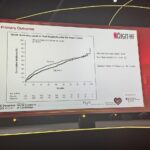Dive Brief:
- Just weeks after announcing a major restructuring, Australian drugmaker CSL struck a deal that may lead to the acquisition of a Dutch biotechnology startup.
- Under the terms announced Tuesday, CSL agreed to pay VarmX stockholders $117 million up front and fully fund the Phase 3 trial of VarmX’s lead medicine, VMX-C001, designed to treat and prevent episodes of internal bleeding for patients taking blood thinners. CSL will also handle manufacturing costs and other expenses associated with pre-launch activities.
- In return, CSL will receive an exclusive option to buy VarmX, which could be exercised after seeing results from the Phase 3 trial. VarmX shareholders are eligible to receive another $388 million in payments before a potential commercial launch and as much as $1.7 billion based on how well the drug sells if it reaches the market.
Dive Insight:
CSL’s restructuring plans include laying off as much as 15% of its workforce, streamlining corporate functions and spinning off its vaccine business, Seqirus. The company expects the moves to eventually produce annual savings of as much as $550 million that can be used to help fund new business development deals, CEO Paul McKenzie told investors in August.
“We want to look at opportunities to enhance our clinical and commercial portfolios,” he said.
VarmX’s work fits well with CSL’s mission, McKenzie said in a statement announcing the new deal. CSL’s Behring business, which sells a variety of drugs for bleeding disorders, brings in most of the company’s revenue. And VarmX’s lead drug has the chance to “address a significant unmet need,” he said.
VMX-C001 is designed to reverse the effects of popular blood thinners known as Factor Xa inhibitors that include Xarelto and Eliquis. Factor Xa drugs have proven highly effective in reducing the risk of blood clots and will be taken by about 30 million people in the U.S., Europe and Japan by 2030 to treat conditions such as atrial fibrillation and deep vein thrombosis, according to VarmX.
But the drugs also carry a risk of life-threatening bleeding for a small portion of patients. VarmX says its medicine offers a chance for a single-dose reversal of the bleeding, restoring coagulation without posing an additional risk of thrombosis, or blood clots.
The safety profile, if it holds up in the Phase 3 trial, will be important because a higher risk of thrombosis helped tank another reversal agent sold by AstraZeneca’s Alexion division. AstraZeneca decided to stop promoting the medicine, known as Andexxa, after an FDA advisory panel raised safety questions about it in 2024. The drug’s original developer, Portola Pharmaceuticals, had also had trouble building a market for it.
Other companies are taking a different approach to dealing with the bleeding risk for Factor Xa medicines, trying to develop next-generation blood thinners that might be safer. Regeneron late last year announced plans to advance two experimental anticoagulants into Phase 3 trials. Bristol Myers and Johnson & Johnson are testing a similar medicine.










